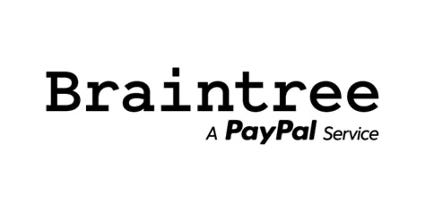Bryan Johnson, Founder of Kernel, OS Fund and Braintree, is an entrepreneur and venture capitalist who had his first success as founder and CEO of Braintree, a mobile-payments company he sold to PayPal for $800m in 2013. Leveraging that success, he founded Kernel, a company developing advanced neural interfaces, and OS Fund, an early-stage VC fund with the mission to fund entrepreneurs and companies developing breakthrough discoveries in deep-tech. In this 30-minute talk, he shares his vision for the future as impacted through the world of deep-tech and brain science.
Source – Braintree
While most of us usually think about day-to-day occurrences, Bryan is thinking about something more existential: the Future of Humanity. This may sound a little grandiose; however, if you consider the combination of cognitive biases humans have, our behaviors towards one another, everything you read in the news and the rise of AI, we can be thankful that someone like Bryan is encouraging us to think bigger about our future.
How is Bryan doing all this?
In 2014, he launched OS Fund, a $100m early-stage VC fund with the mission to fund entrepreneurs and companies addressing our most pressing global issues by developing breakthrough discoveries at the intersection of science and technology. The name "OS Fund" comes from the mission Bryan is trying to achieve through the fund: funding companies who are building the Operating Systems of life. In 2018, OS Fund was the biggest investor in synthetic biology by number of companies invested. According to Pitchbook, OS Fund's returns are in the top decile of VC performance in the US. Of 28 investments, 27 received follow-on financing, 4 are valued at over $1B, and 3 have been acquired; proving that this sort of investment thesis is not science fiction, rather, it is a much-needed financing source to tackle our world's biggest problems, while making fantastic returns for LPs.
Source – OS Fund
In 2016 he invested $100m of his own money (after talking to +200 VCs who rejected funding his new project) into building a new company, Kernel, with the mission of building advanced neural interfaces to treat disease and disfunction, illuminate the mechanisms of intelligence and extend cognition throughout our lifespan.
Source – Kernel
He believes the future of humanity will be defined by the combination of human and artificial intelligence. He is also a pilot and the author of two children’s books. Oh, and he is also a health improvement freak, check out Project Blueprint if you want to know what I’m talking about…
Bryan's story & Ideas:
Source – Dot.la
· At 19, he served a 2-year mission for the Mormon Church in Ecuador, where he lived amongst extreme poverty.
· When he came back to the US, he asked himself what he was going to do with himself. After his experience in Ecuador, he decided the only thing that mattered to him was doing something that improved people’s lives. "What one thing could I do that would maximally help the most people?".
· At 21, not being happy with the options he saw around him, he decided the best way of going about this would be to become an entrepreneur, make a bunch of money, and then decide what to work on.
· During his journey as an entrepreneur, he fulfilled this goal after selling Braintree, at the expense of being chronically depressed for 10 years. "I wanted to seize to exist".
· Amidst of this personal situation, he sold Braintree, ended a 13-year marriage, left the Church he was born into, and tried to reconstruct himself from scratch.
· If the question at 21 was "how can I be useful?", the question at 35 was "how can I maximally improve the chances of humanity thriving?".
· “What is the most advanced technology in this picture?”
Source – Fireside Chat: A Plan for Humanity with Bryan Johnson
The plant. "The plant is a biodegradable carbon capturing self-replicating solar-powered work of art". Our technology is not even close to that. Yet, most of our thinking goes to what we can see, the familiar, the obvious. But the beauty of this plant lies beyond the resolution of our eyes; we can't see the inner workings of the cellular structures, and thus, we don't place a value on it as we do with technology.
Takeaways:
· Politicians are not the answer. We cannot rely on our political system to solve problems such as climate change. The answer to large-scale problems is in deeptech.
· We focus too much on the things we can see. We need to focus more on the things we cannot see.
· Idea #1 – If we are going to go big, we need to go small. We need to pay attention to the things we cannot see. This is a big problem for us as we prioritize that which we can see.
· Idea #2 – Everybody is working on problems downstream of the brain. We don't have a climate change problem; we have a human brain problem. It is our brains individually and collectively which creates these problems. How we build AI is an output of our mind, how we design economic systems is an output of our mind, how we solve climate change is an output of our minds; but nobody thinks about the mind as the core operating systems that runs everything else. This is the reasoning that drove Bryan to found Kernel.
· Idea #3 – Our ability to systematically engineer atoms, molecules, organisms and complex systems is what will solve our most pressing problems at the right level of resolution during the next few decades. The Bits vs Atoms dichotomy.
· Idea #4 – We need to understand biology and invest in advancing its capabilities. We live in a big ball of biology floating in space, and we have no ability to work with this stuff. We are pouring more investment into funding e-scooters/e-bikes companies than we are into synthetic biology. That's a problem.
Source – Fireside Chat: A Plan for Humanity with Bryan Johnson
· Idea #5 – If you look at the 400 top people in the Forbes list, only around 5% of them have formal scientific training. This explains, partially, the comparatively low investment into deep-tech, since people generally invest in what they understand.
· Idea #6 – Two quiet revolutions: the ability to write and read DNA. The ability to read DNA has by far exceed Moore's Law, going from $1B reading cost per genome to $1000 in less than 20 years. The ability to write allows for engineering biology, to create something, and although not quite as dramatic as reading DNA, its cost is starting to come down.
· Bryan presents some cool companies that he has invested in through OS Fund: Arzeda, Ginkgo Bioworks (which trades on the New York Stock Exchange after the $DNA ticker), NuMat Technologies, Lygos, Diassess (now Lucira Health), Emulate, Catalog, Kernel.
· Idea #7 – We are not looking in the right places to solve the problems we have.
· Idea #8 – The future of cognition could change our reality in ways that it would make this version of reality unrecognizable, and it could happen in a matter of decades if we develop the tools to take control of our cognition.
· Idea #9 – We are not in a situation right now of having the luxury to choose what we do, rather, it is an absolute necessity to focus on things that solve our problems. The invitation for all of us is: what can we do that truly aligns with our long-term thriving? For what does the future matter if we are not here to experience it, or if we are, and we are in a world of chaos?
I dearly recommend you watch the 30-minute talk.
OpenAI
Source – Contrary Research
By now you've probably read a gazillion things on OpenAI, ChatGPT, etc. probably to a point in which it is very difficult to digest and arrange all the information out there in a way that makes it coherent and sticks.
Worry no more! Here you can find the best comprehensive report on OpenAI. It covers its founding history, market, business model, product suite, competitive landscape... all in a coherent and engaging manner that takes 20 minutes to read.
More on AI...
Source – 27
If you know me personally, you will know that I'm kind of a nerd, but I also like to think of myself as someone with a keen sense of humor. As such, I end up discovering videos like 27.
"27" is a 4-minute video that encapsulates the intricacies of AI and its potential impact on Humanity in a very, very funny way. I dearly recommend you watch it.
A song
As a tribute to entrepreneurship, music and humour, and setting the tone for the future of this newsletter, I bring you Hello Operator.
See you on the next issue.
Stay curious,
Chief Infopunk












